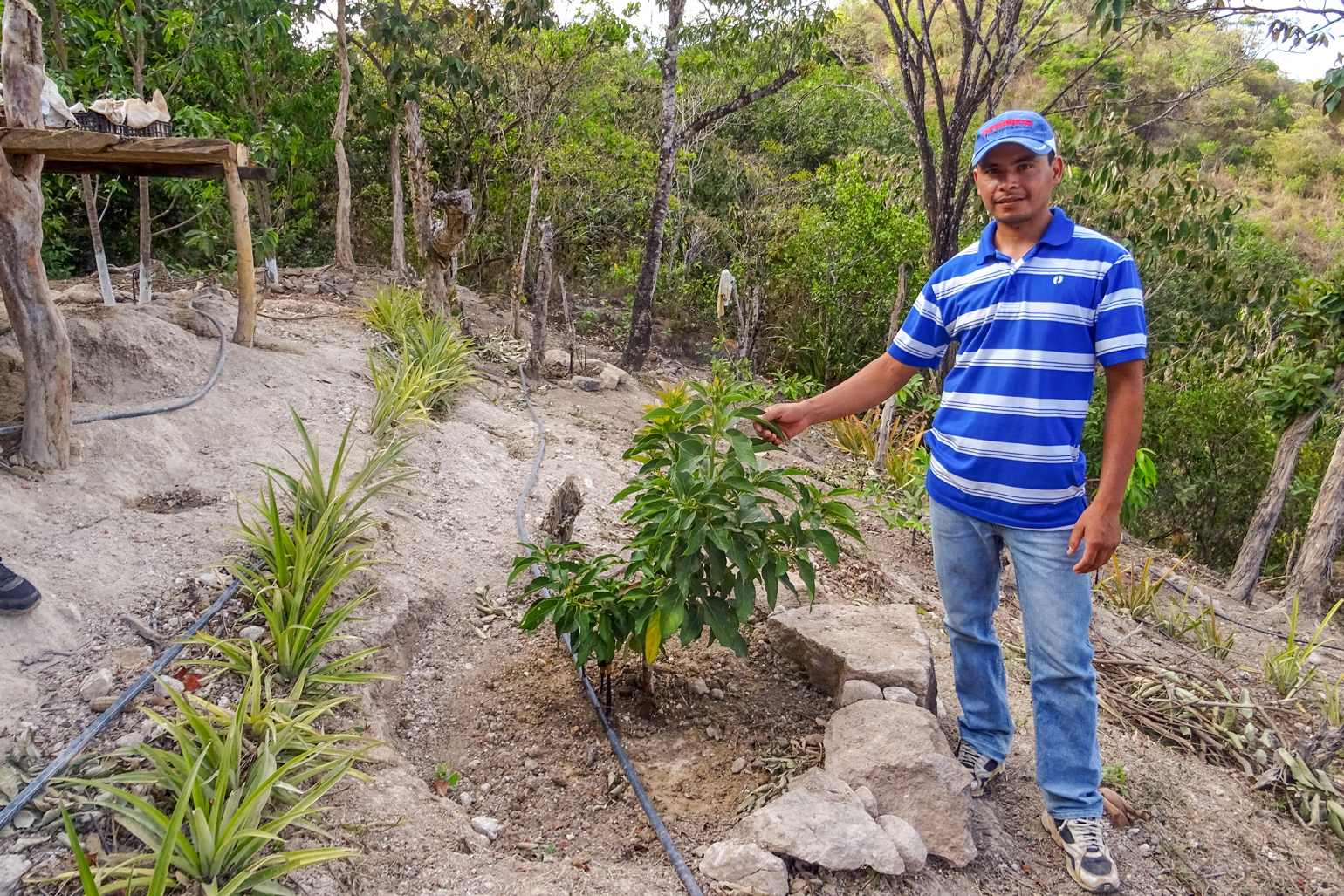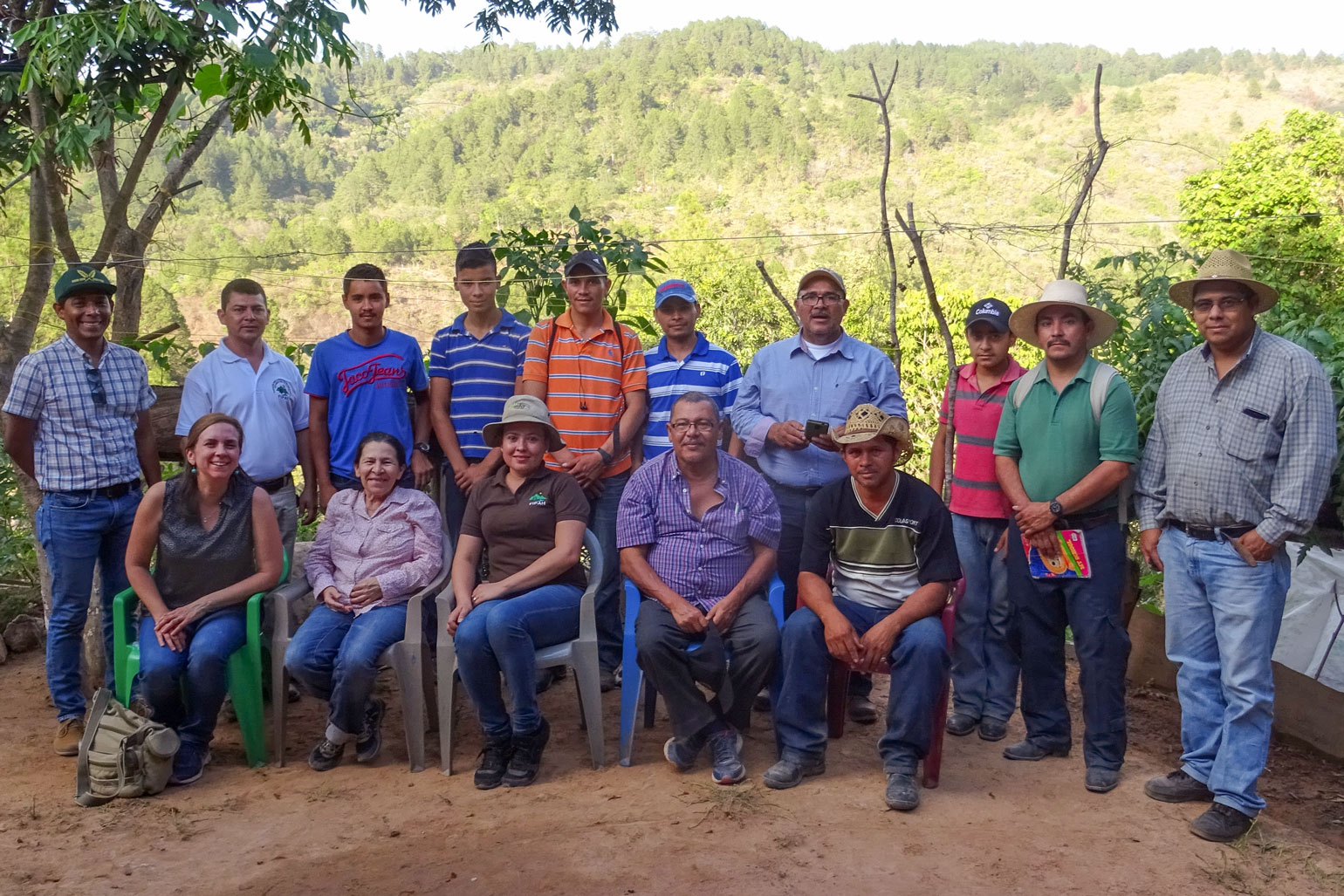Farming through hardship: A family farmer in Honduras discusses COVID, hurricanes and more
October 1, 2021Edwin Adonis Nolasco, a family farmer in Honduras discusses COVID, hurricanes and an incredibly difficult growing season in this Q&A.

When we introduced you to Edwin Adonis Nolasco last year, he was hopeful that his farming skills—built over five years of work with SeedChange and our partner organization, the Foundation for Participatory Research with Honduran Farmers (FIPAH)—would help him and his family weather the COVID-19 pandemic.
Since that time, there have been multiple waves of the pandemic and the most active Atlantic hurricane season ever recorded, resulting in one of the wettest October to November periods since 1981 across parts of Central America. So in addition to the pandemic’s upheaval, Edwin and other farmers dealt with an incredibly difficult growing season.
Our director of international programs, Beatriz Oliver, recently caught up with Edwin on the phone from his farm in Colomoncagua, Honduras, to see how he and his family are doing. Check out their conversation below.
[Editor’s note: this interview has been translated from Spanish and edited for length and clarity.]
In times of hardship, farmers keep their communities fed and healthy. Support them today!
Beatriz Oliver (Bea): Two years ago, I had the opportunity to visit your farm with colleagues from FIPAH. You showed us your seed production and an incredible diversity of crops. You told us about the changes in your life since 2015 when you started working with FIPAH.
Edwin Adonis Nolasco: This work has had a great effect on my community and on me personally.
Bea: How are you and your family doing?
Edwin: Thank God we have made it through. It has been a difficult situation. But thanks to the efforts of SeedChange and FIPAH, I have learned a lot.
I did not need to buy even one fruit. With the pandemic, my community didn’t have access to markets anyway—we were quite closed off. But we had our own beans, tomatoes, chilies and fruit trees for consumption. It’s marvellous. Because before FIPAH came in 2015, I didn’t have anything planted. But now we have fruit trees! My son loves fruit so much.
I don’t depend on the market to provide for what my son, my family and my neighbours eat. It is a great blessing, from our efforts.

Bea: What have been the biggest changes in your life since you started working with FIPAH and SeedChange in 2015?
Edwin: I have had great opportunities thanks to FIPAH and SeedChange. If you remember, I used to be a rural worker for daily wages. But now, I myself am farming. FIPAH was the first organization that came here in Colomoncagua and approached us. You remember my experience. Before, my house was very humble. But thanks to the bean trials we did, we began doing seed production, and with the income from that I managed to improve my home. And now I have my farm, on which my family depends, and I have a lot of knowledge too.
Bea: Was your farm affected by the recent hurricanes or storms?
Edwin: Nature brings good and bad things. Many crops could not be harvested: only 20 per cent of bean and maize crops. For some other farmers, the storms resulted in a total loss, because there was too much water. I invested $300 into the farm this year and only managed to recover $50.
Bea: Have the practices you use helped to protect your farm or recover?
Edwin: With the vegetables we were able to produce, we were able to get by. Thank God there was an area of the farm that was more protected and we could move forward.
I continue to produce tomatoes, beans and maize seed—thanks to trials I did with my local farmer-researcher group. We work with seeds that are native to the climate of our area, good seeds. Now we have a lot of organic tomato seed production. I have a plot of 30 pounds of bean seed from FIPAH planted now. There has been some damage from animals and I had to invest in netting to protect the seeds. But that seed is growing well now, with drip irrigation, and it sells very well.

Bea: In the last year, what kind of activities did you carry out with support from the COVID emergency response program?
Edwin: FIPAH provided a lot of emergency support this year. They supported us with masks and a special laying hen project. That is going brilliantly at the moment.
My wife, Ana, also thought the emergency support we received during the pandemic was very good. Sometimes she was worried about the chickens because she did not have experience with this type of production, but luckily there was no problem. She is the one who sells the eggs. And we eat the eggs, we don’t depend on going to the market.
Bea: How do you think the production practices you use and the skills you’ve strengthened through the program with SeedChange and FIPAH have helped you to cope with the pandemic?
Edwin: They’ve permitted us to have a good harvest. During the pandemic I harvested a lot of vegetables, it helped a lot economically and for having food.
I used to be an isolated person, but now there are groups of people who visit me and I explain my farming experience to them. I always say first of all that it is FIPAH that supported me. I feel privileged that people visit me.
Before this program, I didn’t know what it was like to run a farm. I am a person transformed by organic farming.
